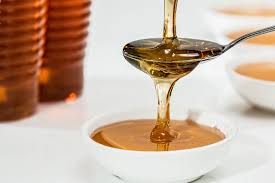Sneezing, runny nose and itchy eyes, sound familiar? It probably does, considering the sun is out and the pollen is rife! Sadly the festival weather isn’t all fun and games for the quarter of Londoners who suffer from Seasonal Allergic Rhinitis, more commonly known as hay fever.
Allergic Rhinitis is an airborne allergic reaction that occurs when substances called allergens connect to allergy receptors in the nasal cavity. The body reacts by releasing a compound called histamine, which in turn causes a cascade effect of itchiness, runny nose, sneezes, watery eyes, and headaches.
13 million people in the UK are affected by the condition – which amounts to a lot of antihistamines sold each year! Antihistamines are the over-the-counter medicine most commonly used to counteract the symptoms of hay fever but often come with a series of nasty side effects, notably drowsiness, dry mouth, rapid heartbeat, difficulty with urination, weight gain and rapid mood changes.
Although many people take these medications with no problem, it’s worth considering that nature might be both the cause and cure for the condition. Therefore, the team here at Fix have compiled a list of the best natural remedies that have been proven to combat the pollen, so you can keep fighting nature with nature!
1. Nettle Tea
After hearing from one of our patients that Nettle tea cleared up her partner’s powerful seasonal allergies, we brought it to the festival to try it out in the fields! Ironically, it turns out that 4 cups of nettle tea a day, mixed with honey and mint, tempers the ‘prickly’ sensations around the eyes and nose. Magic! For extra brownie points you could pick the nettles fresh yourself, as long as you make sure to wear gloves!
2. Become at one with the Bees
A great way to boost immunity to pollen is by acclimatising yourself by eating the local honey. James Hamill a 4th generation beekeeper says “Most people aren’t coming in contact with local pollen and where would they ever eat it in their daily diet unless they can eat fresh local honey?”
If local honey is consumed year round, by the time the pollen season hits you’ll have boosted your body’s tolerance to the pollen. For natural local honey check out Hackney Garden Honey based in East London.
3. Treat yourself to some Acupuncture
Acupuncture has extremely positive results in helping hay fever. Melanie Hackwell, our acupuncturist at Fix East Village explains that “In Chinese medicine hay fever corresponds to a deficiency in the Lung and Kidney’s defensive Qi systems, with a retention of Wind in the body. For best results it should also be treated out of season, with some practitioners preferring to treat one month before the season begins. However, I do both and find there are great improvements in treating just after the season as well as before”.

For information on booking acupuncture at Fix, please go to www.fixlondon.co.uk
